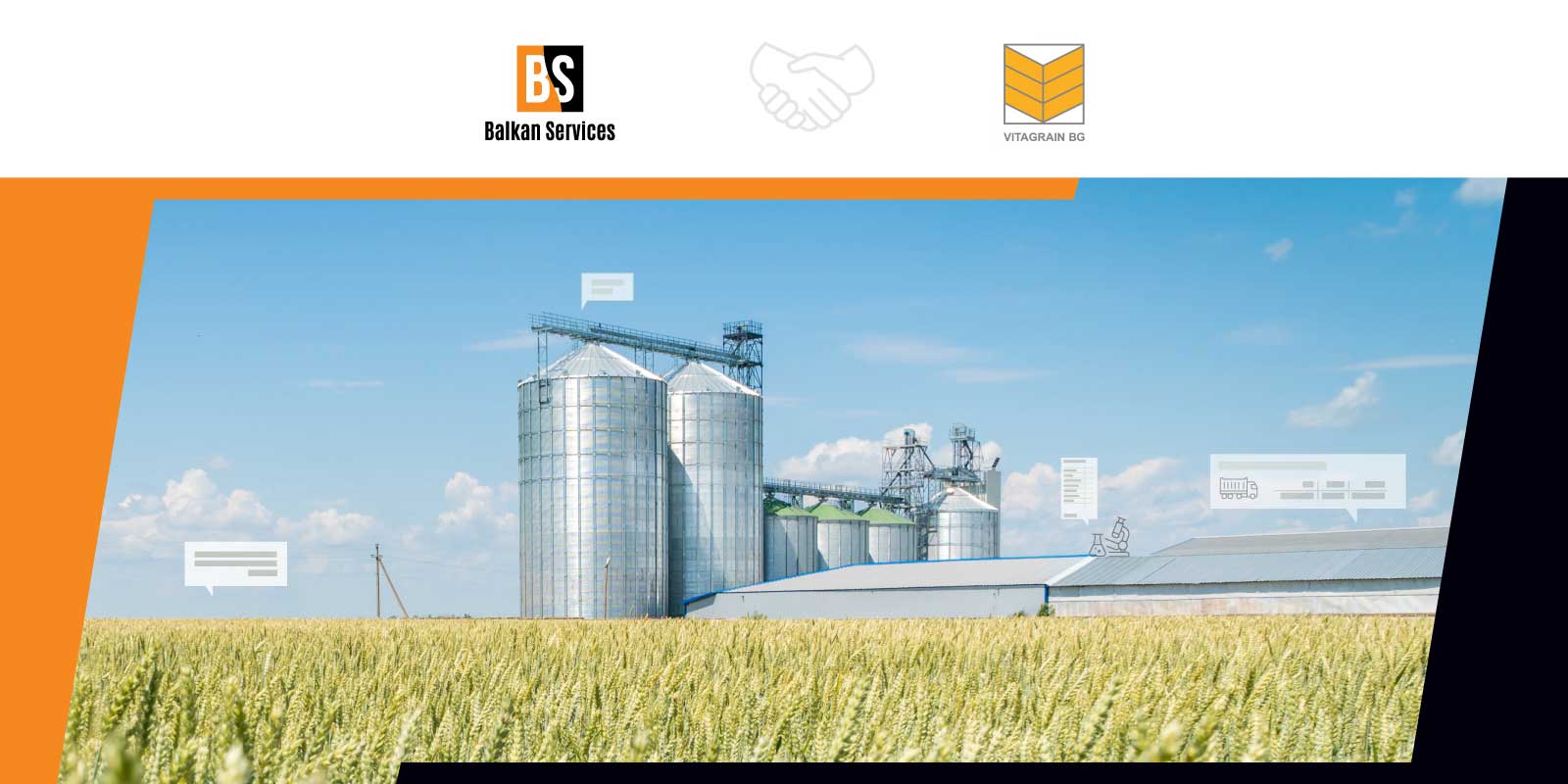Contact information.
-
Address"Ekzarh Yosif" street, 31, 1000 Sofia, Bulgaria
-
Phone:+359 2 980 95 99
-
Websitewww.balkanservices.com

When you first started the process of implementing software in your company, you were probably looking for a solution that would take your business to the “next” level, optimize key processes, and ultimately help your company grow. All of these goals may have been achieved, but that doesn’t mean the “journey” is over.
Continuing to work with your old systems without taking stock of the changing needs of your business is the equivalent of “stagnant development.” To get out of this situation, it’s important to determine if your company is sufficiently optimized and if your processes are as integrated as possible into your existing ERP system. Perhaps you need to process new data or need to organize your company assets.
Whatever the steps are, the next question to ask yourself is, “Can the ERP software available in the company handle these tasks?”
ERP (Enterprise Resource Planning) is an end-to-end business management software that enables the automation of all key business processes and the optimal use of human, material, and financial resources. An improved central “command center” is now in the hands of the Bulgarian company Vitagrain and gives it the advantage of seeing in real time what is happening in each of its divisions.
Read more: Everything you need to know about ERP systems
Vitagrain has a history of nearly 20 years and today is a leader in the grain and oilseed trade.
The company owns modern silo facilities in General Toshevo and Svishtov and flat warehouses in Sv. Skalitsa, which is strategically located in some of the largest agricultural production areas of the country for trading from the site.
The company is constantly expanding its activities and investments in its desire to remain a reliable partner in a sector where trade, logistics, and the movement of funds are often challenging.
The company’s existing ERP system, Atlantis ERP, which was implemented by our team years ago, tracked Vitagrain’s deliveries, invoicing, payables, and receivables.
There were two other software programs in the company’s databases – one measured truck weights and the other did lab analyses of the grain delivered. Once the information from these two programs came in, it had to be manually entered into the ERP system. However, this could not be done by the employees in all the grain depots and required assistance from the team at the company’s headquarters in Sofia.
Another difficulty with the old method of working in Vitagrain was that the deliveries themselves were not recorded for each truck, but in total batches.
Our main need at the time was to start working with one system and train the staff on the bases to work well with it,” Daniel Todorov, who has been an accountant with the company for eight years and was the main actor in the joint project on Vitagrain’s side, tells us.
He points out that it was important for the company’s business that in the future their software would be able to measure trucks, analyze the quality of the goods, and provide a variety of reports and options for different sections.
Most important, however, was to get real-time information. For example, if we now have one truck at our base in General Toshevo – all the information about it should be available instantly and at headquarters in Sofia,” explains Daniel.
A platform that can provide a solution to these cases would help Vitagrain control the processes in its grain depots and minimize the operational time for employees. With the current way of working, with several software simultaneously, there was a risk of errors and discrepancies in the data entered into the different systems.
We wanted what we already had as an ERP system to be upgraded to our current needs,” summarizes Daniel.
Looking for a suitable solution to their current business process management challenges, Vitagrain contacted our team because of our good professional relationship.
“As we already had an ERP system and had made tweaks to the program over the years we knew that the Balkan Services team could be easily communicated with, issues and ideas discussed, and new things added to the workflow,” says Daniel of his impressions.
So we will tell you in the next lines how our collaboration on this complex project went and what the final result was.
Our team is here to listen carefully and offer the right solution for you.

The project lasted about a year, during which the two teams worked on several different phases to integrate, upgrade, and redesign functionality into existing processes.
The aim of the project was for Vitagrain’s ERP system to also take over the grain measurement from the weighbridges at the bases and be linked to the laboratories accordingly,” says Alexander Velichkov, Senior ERP Consultant at Balkan Services.
Vitagrain’s business needs to have a complete set of documents: weighing slips, weighing quantity information, and analysis of them. This analysis gives a subsequent idea of the so-called bonified quantity, which is the actual amount of grain – without moisture and impurities.
One integration is with a laboratory instrument, which is a static machine used for grain analysis. And the second one is with the weighbridge software.
Regarding the first integration, our team connects the scales that are located on the Vitagrain grain bins to the ERP system. In this way, the company can now control the entire inbound and outbound grain process. Importantly, in this case, the system automatically provides information on all trucks and the weights measured.
The functionality enables more precise and timely control, as before the ERP upgrade these records were entered manually.
There is no traceability and the ability to analyze from Vitagrain HQ,” emphasizes Alexander.
Hristo Kostadinov, project manager at Balkan Services, tells us about the second integration.
We have made it so that 37-grain indicators are stored in Vitagrain’s ERP system and those obtained from the laboratory instruments are automatically recorded in the system. In this way, we provide Vitagrain with the ability to provide detailed and timely quality analyses by supplier, region, harvest, grain crop, and any other cross-section that management needs.”
In other words, for each truck, there is a set of indicators that the software stores, and thus Vitagrain has clarity at any moment what is the average quality of the delivered grain. The same procedure is repeated when the grain leaves the warehouses so that it is clear what the quality of the grain leaving the grain bins is.
Read more: Viplast AD optimizes its production with Soft1 ERP cloud software [case study]
When the project starts, its scope is relatively “narrow”, leaving an “open” end in the process. Thus, whenever there is a need for additional functionality, our team remains ready to take on a new assignment, propose a solution, and make that customization possible.
The project ran almost throughout 2022 at a pace that allowed us to comply with Vitagrain’s pre-drawn workload schedule while managing to add the client’s new requirements and adapt them to the existing design and architecture we made specifically for their lab analysis,” says Hristo.
He stresses that this project was perfectly tailored to the client’s needs.
Vitagrain completely ‘scratched’ the existing lab analysis software at the time and no longer uses any additional software at all to maintain the lab, which saves the company costs,” says Hristo.
In addition to all of the above, the ERP system has the functionality to automatically account for scale differences.
We provided our client with a system, behind which we built quite complex functionalities because we had to comply with the existing processes and way of working in the company,” summarizes Hristo.
The main benefit for Vitagrain’s grain bin employees is undoubtedly that they are now working with one software rather than three.
They are very happy and appreciate that we are doing something for them because all the changes that have become reality are to their benefit,” says Daniel.
He adds that an undeniable benefit for his colleagues in head office is the real picture they have of what is happening in each grain bin.
It also takes a lot of operations out of the way so we have time to do other important things more thoroughly,” Daniel adds.
For the company’s accounting department, he says the immediate benefit is better reporting.
It was during the summer months, which due to the nature of Vitagrain’s business are the busiest for the company, that the bigger challenges of project implementation emerged. These were mainly due to unforeseen situations that had not arisen in previous years and were therefore not accounted for in the brief at the outset.
In these situations, we had a great understanding from the Balkan Services team and also a very quick response from them. They assisted us in every way to make sure that every operation was carried out correctly and that it was accounted for in the ERP system as it should be, so that we had a complete picture of what was happening at the time, in real-time. And in the end, that was the main mission of the project,” says Daniel.
He is adamant that if there was a system to evaluate the work with us he would gladly award Balkan Services the maximum.
The factor behind the success of the project was undoubtedly the good communication between the two teams.
We had a great team in front of us who were interested in the realization of the project, and this was evident in the progress we were making because whenever we needed a test or information, the Vitagrain team responded with lightning speed and adequacy. And this gave us the freedom to act and do more and more on the project,” says Hristo.
On the other hand, our team knew the nature of Vitagrain’s work very well. Therefore, despite the complexity that the new functionalities required, the process went smoothly – with the submission of the assignment from their side, the solution options were immediately available from our side.
No business nowadays can grow and be competitive without the use of IT systems.
Choosing the right software solution and implementing it is a complex, difficult but critically important decision.
At Balkan Services we have expert knowledge of business, technology, and legislation, and we speak all three languages. We will listen carefully and advise you on choosing the right business system for your needs.